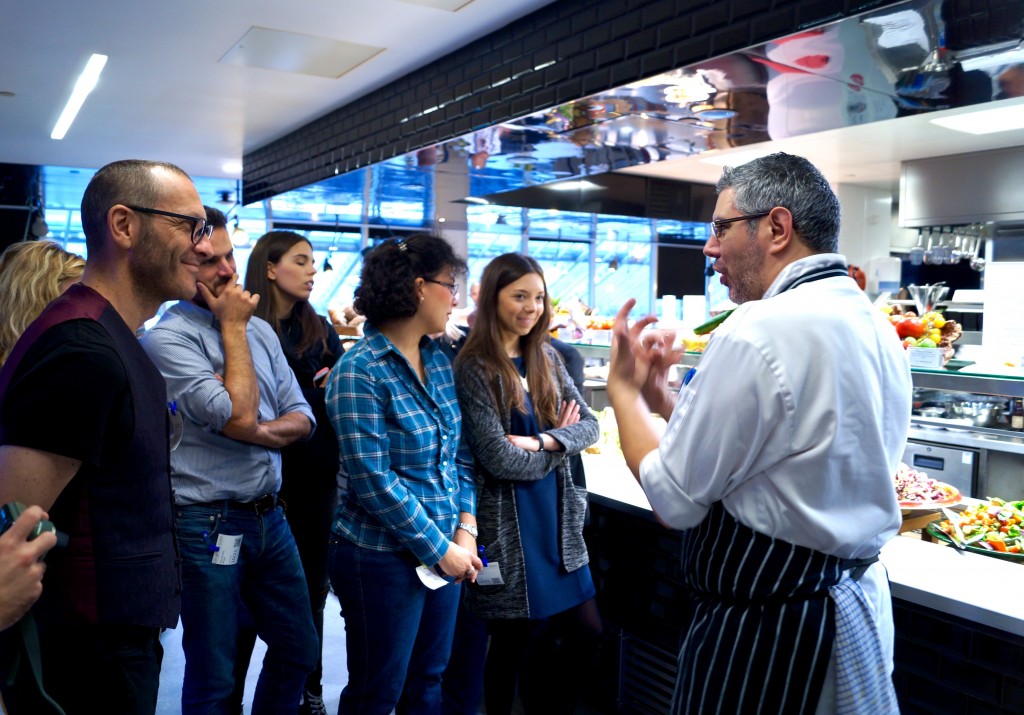 Tim West, chef turned social entrepreneur, took the stage to speak about his experience with food hackathons and the importance of cross-pollination. Francesco D’Onghia, Academic Coordinator of the Food Innovation Program, followed with an introduction to the Master degree, and how design thinking and disruptive innovation is integrated into the educative model. After, a panel discussion took place with four of our students – Elisa Bedin, Kelly Angela Lee, Hildreth England and Chiara Cecchini whose speech focused on “the bright space that’s available to innovate in food that happens at the intersection of tradition and novelty,” says Hildreth.
Tim West, chef turned social entrepreneur, took the stage to speak about his experience with food hackathons and the importance of cross-pollination. Francesco D’Onghia, Academic Coordinator of the Food Innovation Program, followed with an introduction to the Master degree, and how design thinking and disruptive innovation is integrated into the educative model. After, a panel discussion took place with four of our students – Elisa Bedin, Kelly Angela Lee, Hildreth England and Chiara Cecchini whose speech focused on “the bright space that’s available to innovate in food that happens at the intersection of tradition and novelty,” says Hildreth.
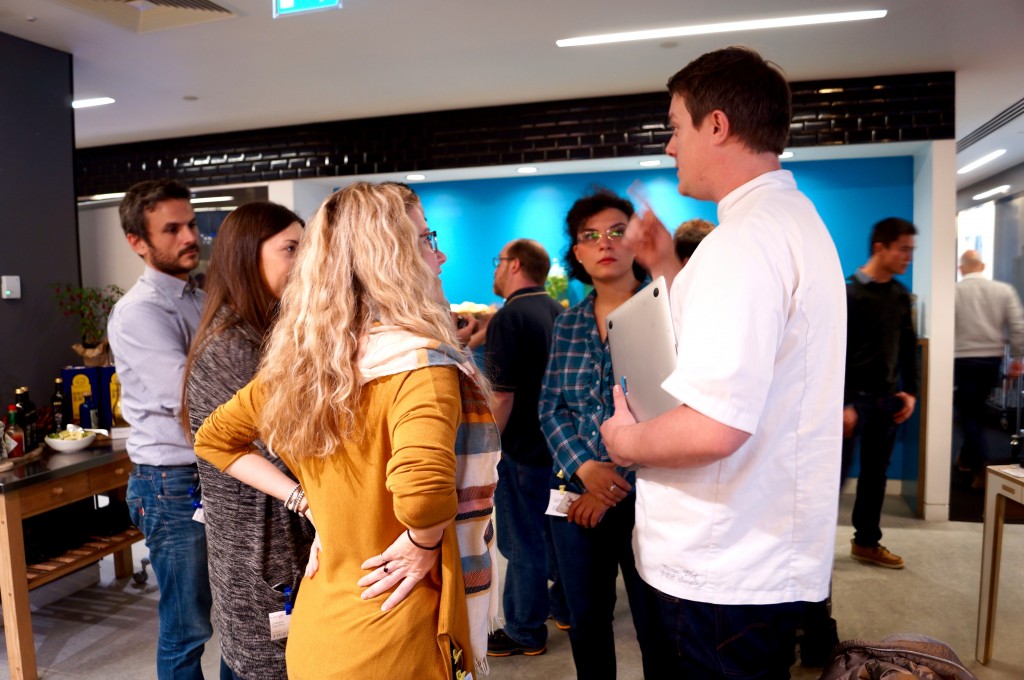 Innovating in the food space means “entering into a very intimate sphere of food choices, which are based in each individual’s unique, personal story of food,” she adds. “Food innovation can happen both with technology and without it. Chiara and I focused on changing behaviors around food with technology, Elisa spoke about the innovations that can happen in the long pathways that lead up to our kitchens and our tables (our ‘foodscapes’), and Kelly talked about how innovation can simply happen in the kitchen, around food.”
Innovating in the food space means “entering into a very intimate sphere of food choices, which are based in each individual’s unique, personal story of food,” she adds. “Food innovation can happen both with technology and without it. Chiara and I focused on changing behaviors around food with technology, Elisa spoke about the innovations that can happen in the long pathways that lead up to our kitchens and our tables (our ‘foodscapes’), and Kelly talked about how innovation can simply happen in the kitchen, around food.”
 Guests were then encouraged to get up and experience a 3D printer in action with the help of digital fabrication specialist Antonio Gagliardi. Andrea Bezzecchi from Acetaia San Giacamo in Reggio Emilia was there too in order to showcase his traditional aged balsamic vinegar, which had been used at the Roma Maker Faire in the 3D printing process. Guests were treated to a sample of traditional 25 year old balsamic vinegar with printed white chocolate moulds.
Guests were then encouraged to get up and experience a 3D printer in action with the help of digital fabrication specialist Antonio Gagliardi. Andrea Bezzecchi from Acetaia San Giacamo in Reggio Emilia was there too in order to showcase his traditional aged balsamic vinegar, which had been used at the Roma Maker Faire in the 3D printing process. Guests were treated to a sample of traditional 25 year old balsamic vinegar with printed white chocolate moulds.
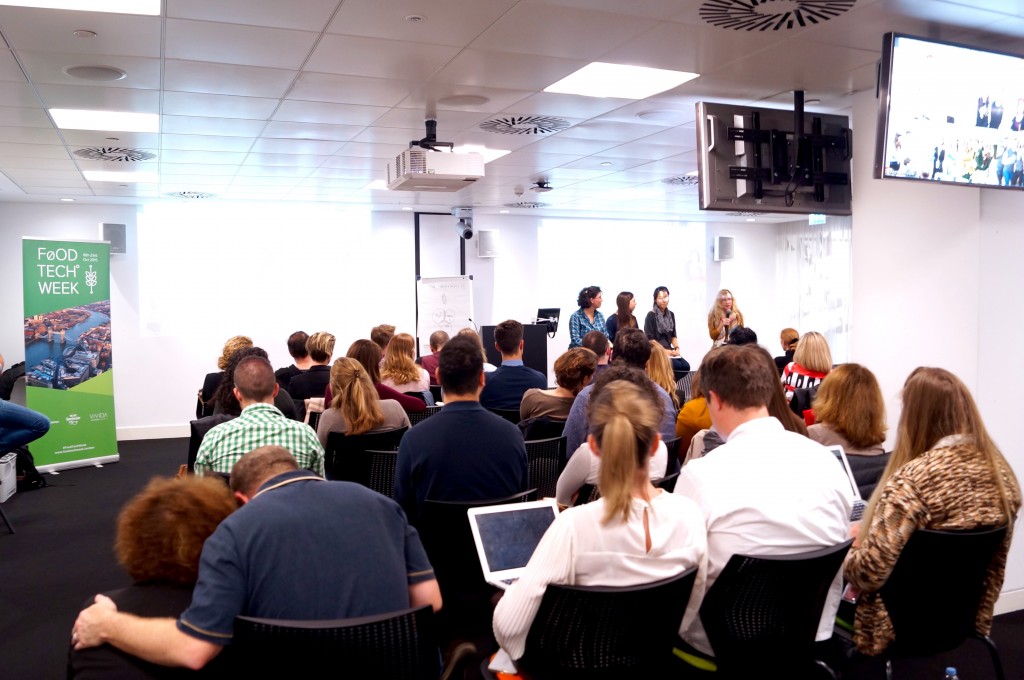 It was then time for policy-shaker Alessandro Pirani along with WikiExpo ambassadors Mercy Chatyoka and Karla Gonzales Ramos, to explain the importance of the crowd-sourced platform built especially for Milan Expo, and the necessity to memorialize the events of the Universal Exhibition for future generations.
It was then time for policy-shaker Alessandro Pirani along with WikiExpo ambassadors Mercy Chatyoka and Karla Gonzales Ramos, to explain the importance of the crowd-sourced platform built especially for Milan Expo, and the necessity to memorialize the events of the Universal Exhibition for future generations.
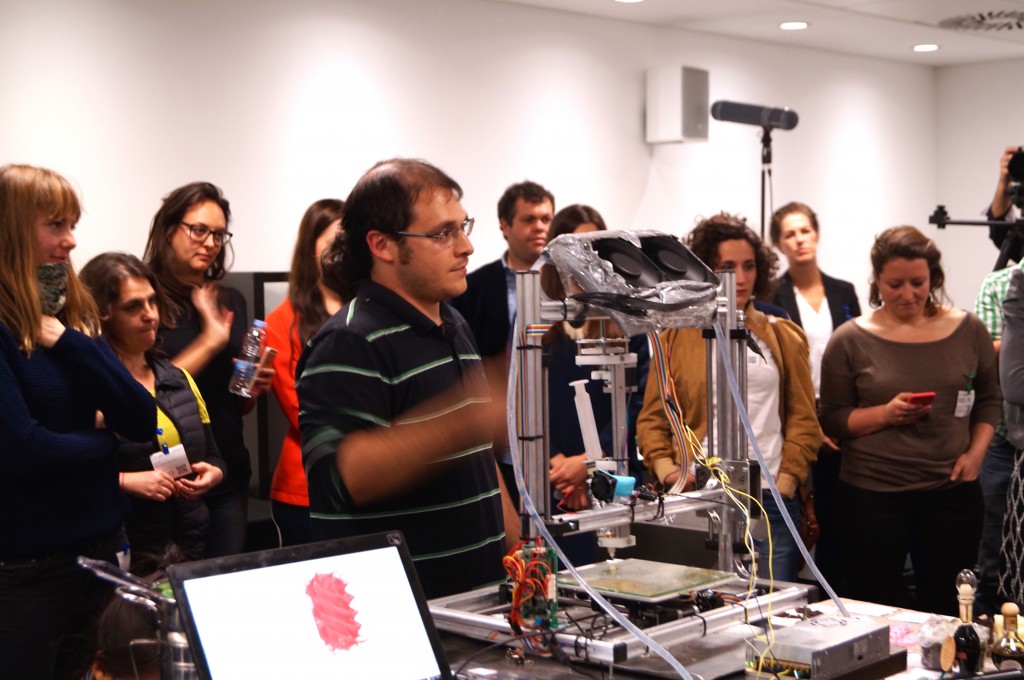 To wrap up the event Stefania Abbona from the Algae Factory introduced their newly developed chocolate bar, which combines rich extra-dark chocolate with spirulina (microalgae). Together with their NGO partner Antenna, The Algae Factory is supporting and promoting the development of Spirulina farms in Africa in the fight against malnutrition. A portion of the sales will go back to the communities that provide the company with this precious ingredient as part of their Bite4Bite Corporate Social Responsibility program.
To wrap up the event Stefania Abbona from the Algae Factory introduced their newly developed chocolate bar, which combines rich extra-dark chocolate with spirulina (microalgae). Together with their NGO partner Antenna, The Algae Factory is supporting and promoting the development of Spirulina farms in Africa in the fight against malnutrition. A portion of the sales will go back to the communities that provide the company with this precious ingredient as part of their Bite4Bite Corporate Social Responsibility program.
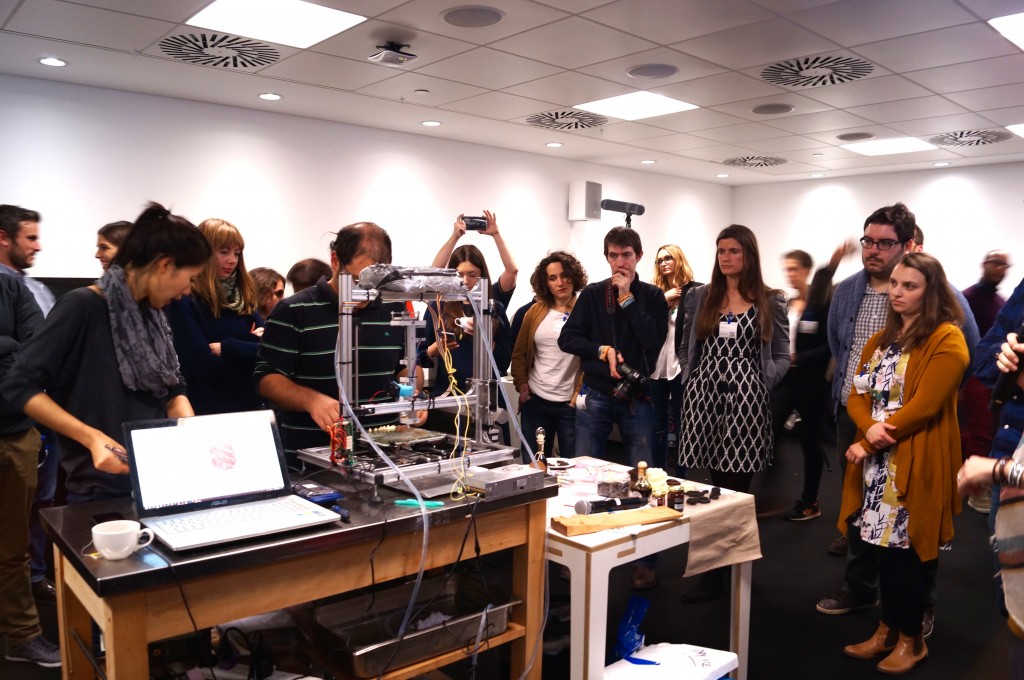 Overall the event was a great success and the Future Food Institute looks forward to many more collaborations and events with Google Food across all sectors.
Overall the event was a great success and the Future Food Institute looks forward to many more collaborations and events with Google Food across all sectors.
